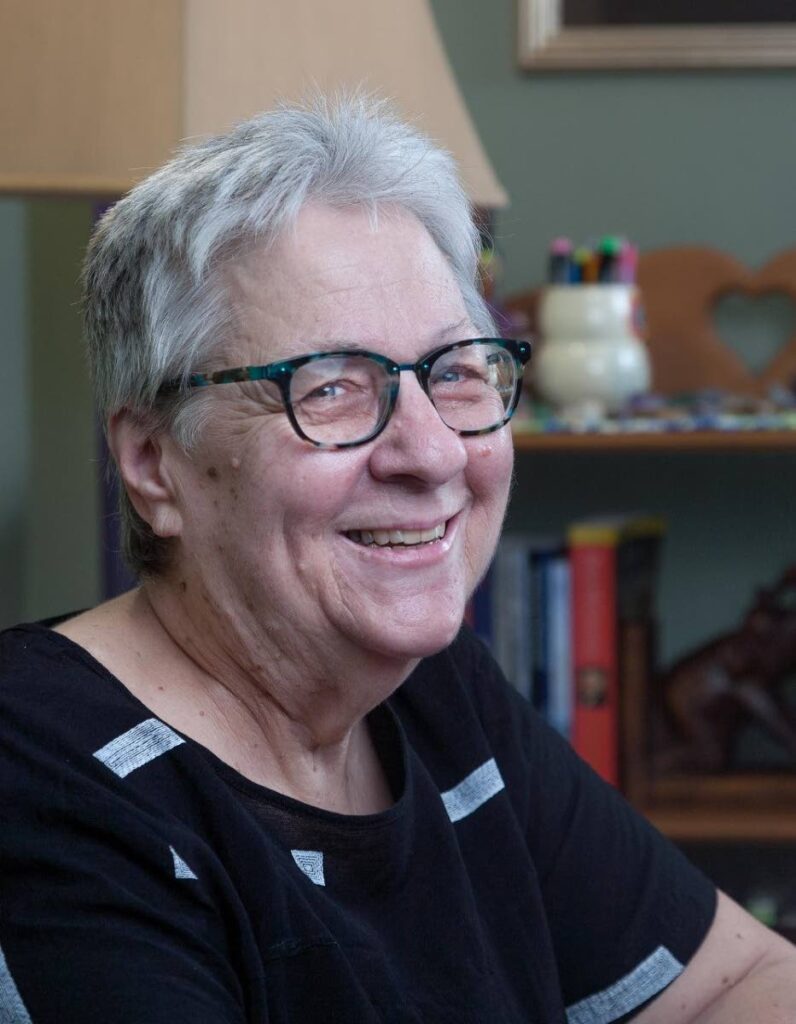The right of citizenship

DEBBIE JACOB
WHAT DOES it mean to be a citizen? Does it mean you officially belong to a place? Does it mean you would fight and sacrifice your life for your country or find ways to make your country a better place? Does citizenship evoke any special feelings in us?
These questions keep surfacing since I became a citizen of Trinidad and Tobago a few weeks ago. My experience mingles now with the memory of my immigrant mom and maternal grandparents. Books and stories trigger some unexpected feelings as well.
These days I’m reading Daniel James Brown’s latest nonfiction book, Facing the Mountain, the story of Japanese American (Nisei) soldiers serving in the US army during World War II. The Nisei suffered racism, humiliation and scorn, but never doubted their sense of duty. Their story, sad but inspiring, makes this a challenging read.
The breaking point for me came on page 355 when Col Virgil Miller of Puerto Rico received a reprimand from the commanding general who wanted to review the victorious troops that had just won a brutal battle in the Vosges, low-lying mountains in France that border Germany.
The general watched Miller and his Nisei soldiers, then said, “Colonel, I told you to have the whole regiment out here. When I order everyone to pass in review, I mean the cooks and everybody…”
Miller said, “General, this is the regiment. This is all I have left.”
Only four of the 1,800 soldiers in that troop survived a series of suicide battles.
Here stood soldiers born in the US to Japanese immigrant parents. After Pearl Harbor, they had been removed from their homes and their livelihood and placed in internment facilities, a euphemism for concentration camps. The immigrants were never allowed to become US citizens. They had been asked to renounce any allegiance to Japan. While the Nisei sacrificed their lives in battle, their parents had been rendered stateless.
Being stateless has troubled me since the fourth grade of elementary school when we read Edward Everett Hale’s short story, The Man Without a Country.
In the story, a Yankee soldier, caught and tried as a traitor during the civil war, blurts out in a moment of anger, “I wish never to hear the name of my country again.”
He gets his wish. The soldier is kept on a boat offshore where he can never read a newspaper or hear the name of his country again.
That story left indelible images of statelessness, patriotism and citizenship in our ten-year-old minds.
At home, I saw my mother and maternal grandparents grapple with the weight of statelessness and citizenship. My US-born maternal grandmother, Josephine, uprooted three times in her life, had been taken back to Romania after she was born in St Louis, Missouri. She would flee Romania and bring her family from Germany to the US after World War II.
Grandma Josephine had a subscription to Hausfrau, a German magazine for housewives. She wore the traditional headscarf of orthodox European women. Of the three people in her family, my grandmother, born in the US, never formed a real connection to her country of birth. She never learned to speak English well.
My mother, born in Romania, lived as a displaced immigrant in Nazi Germany before becoming a US citizen. Growing up we ate sauerkraut and Salisbury steaks – glorified hamburgers. Her rum ball and snowball Christmas cookie recipes were all written in German. My mom and grandparents shopped in German grocery stores and only spoke German with each other.
My maternal grandfather, Stefan Gotz, born in Hungary, woke up one day after World War I and found the city where he lived had been given to Romania in a treaty after the war. He became a naturalised US citizen and always seemed to straddle European and American cultures. He spoke five languages fluently: Romanian, German, Czech, Hungarian and English.
But what did US citizenship mean to them? Did it ever bring peace of mind? What does a sense of belonging mean to an immigrant who always feels different? I wonder about this even now after living in Trinidad for 38 years, nearly a decade longer than I lived in the US.
Is citizenship something personal? Is it a collective state of being? Does it inspire us and make us proud? What sacrifices are we willing to make to call ourselves citizens?
Looking back over my family’s experiences and the books and stories I have read that made an impact on me, I can only say that citizenship is a right we should never take for granted.

Comments
"The right of citizenship"